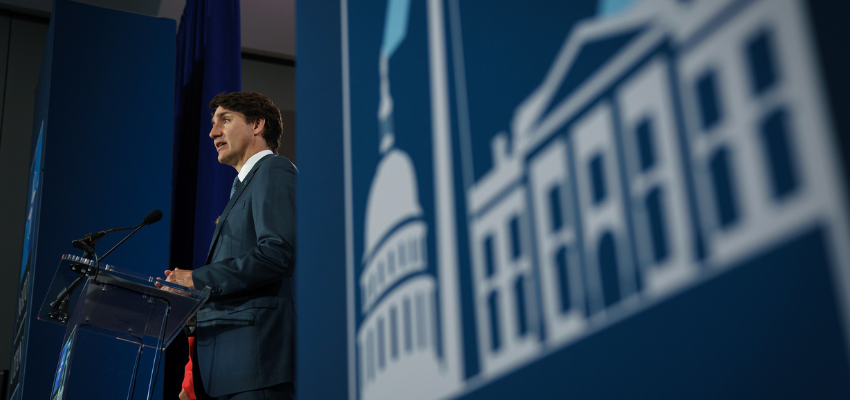This article originally appeared in National Review.
By Peter Menzies, September 16, 2024
America is running out of patience with Canada.
This time, the issue is not the northern neighbor’s refusal to meet defense-spending commitments. Nor is it a revival of the softwood-lumber problem, now entering its fifth decade. This time, it is Canada’s break from the Organization for Economic Co-operation and Development’s (OECD) efforts to determine an international agreement on how to tax global tech giants.
Facing devastating budget deficits, Prime Minister Justin Trudeau’s government gave up on the OECD process that has dragged on for years without resolution. On June 20, Canada’s Parliament enacted a Digital Services Tax (DST) on all domestic and foreign companies’ Canadian income earned from the online marketplace. This includes advertising and social-media services, as well as any revenue derived from user data transactions. The tax applies to domestic companies that earn $20 million CDN in revenue annually and, for foreign companies, 750 million euros in global revenue annually. The tax is retroactive to January 1, 2022, and first payments are due in June 2025, by which time it is expected the government will have put plans in place on how to spend the revenue earned — estimated by Canada’s Parliamentary Budget Office to be more than $7 billion CDN over the next five years.








